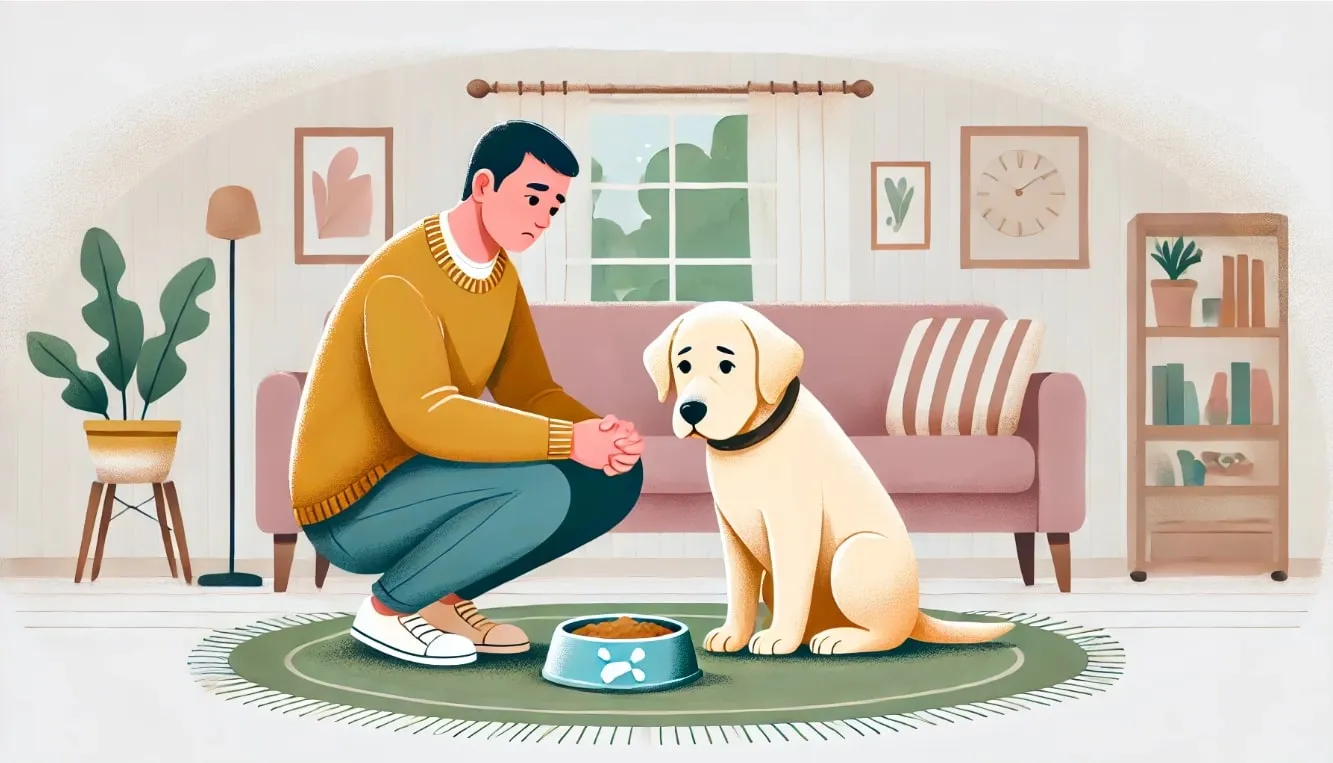Not Eating Food

When your dog isn’t eating, it can be a cause for concern. There are various reasons why a dog might lose their appetite, and it’s essential to identify and address the underlying cause to ensure your dog remains healthy and happy.
Common Causes
Medical Issues
- Illness or Pain: Conditions like infections, dental problems, gastrointestinal issues, or chronic diseases can cause a loss of appetite.
- Medications: Certain medications can have side effects that reduce appetite.
Behavioral Issues
- Stress or Anxiety: Changes in the environment, separation anxiety, or other stressors can affect your dog’s eating habits.
- Picky Eating: Some dogs may develop preferences for specific foods and refuse to eat anything else.
Dietary Changes
- Food Quality: Low-quality food or sudden changes in diet can lead to disinterest in food.
- Overfeeding: Excessive treats or table scraps can reduce your dog’s appetite for regular meals.
Symptoms to Watch For
- Lethargy: A lack of energy or enthusiasm can accompany a loss of appetite.
- Weight Loss: Noticeable reduction in weight over a short period.
- Vomiting or Diarrhea: These symptoms, along with a lack of appetite, could indicate a more serious issue.
Management and Solutions
Consult Your Veterinarian
If your dog refuses to eat for more than 24 hours, it’s crucial to consult your vet to rule out any underlying medical conditions.
Adjust Feeding Practices
- Consistent Schedule: Feed your dog at the same times each day to establish a routine.
- Portion Control: Ensure you’re providing the correct amount of food based on your dog’s size, age, and activity level.
Improve Food Quality
- High-Quality Diet: Provide a balanced and nutritious diet with high-quality ingredients.
- Gradual Changes: When changing your dog’s food, do it gradually over a week to avoid digestive issues.
Address Behavioral Issues
- Create a Calm Eating Environment: Minimize distractions and stressors during meal times.
- Exercise: Ensure your dog gets enough physical activity, which can stimulate appetite.
Home Remedies
- Warm the Food: Slightly warming your dog’s food can make it more appealing.
- Add Toppers: Consider adding a small amount of wet food or broth to dry kibble to enhance flavor.
When to Seek Immediate Help
If your dog shows any of the following signs, seek veterinary assistance immediately:
- Severe weight loss
- Repeated vomiting or diarrhea
- Lethargy or weakness
- Signs of pain or discomfort
FAQs
How long can a dog go without eating?
Healthy dogs can typically go without food for a few days, but it’s not recommended. Always consult a vet if your dog hasn’t eaten for more than 24 hours.
Can I give my dog human food to encourage eating?
It’s best to avoid human food as it can lead to unhealthy eating habits and nutritional imbalances. Stick to high-quality dog food or vet-approved treats.
What if my dog is just a picky eater?
Try offering high nutrition food suitable for dogs and avoid giving treats or table scraps to encourage regular eating habits.
Is loss of appetite common in older dogs?
Yes, older dogs may experience a decrease in appetite due to various factors, including decreased activity levels and medical issues. Consult your vet for specific recommendations for senior dogs.
For more information or support, join our Pack Platform to connect with other dog parents and experts.